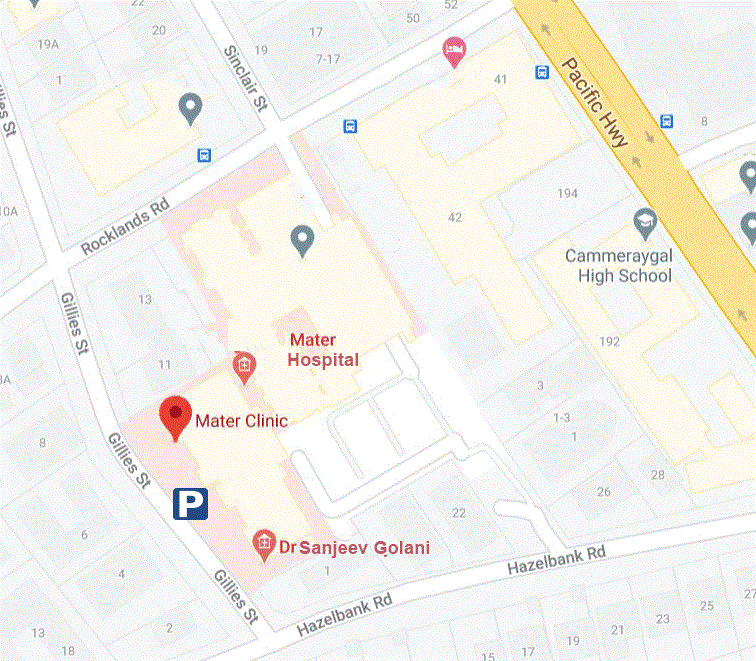Ventral Hernia
What is a Hernia?
Hernias occur when an organ or tissue pushes through a weak spot in the surrounding muscle or connective tissue. While inguinal hernias are the most common type, ventral hernias are prevalent as well, often occurring due to similar risk factors such as aging, obesity, previous surgeries, or abdominal trauma. Read more about hernia surgery here.

What is a Ventral Hernia?
A ventral hernia occurs when abdominal tissue protrudes through a weak spot in the abdominal wall, resulting in a bulge or swelling. Unlike inguinal hernias, which typically occur in the groin area, ventral hernias can develop anywhere on the abdominal wall.
Causes of Ventral Hernias?
Ventral hernias can develop as a result of various factors, including:
- Weakness in the abdominal wall due to aging or previous surgeries.
- Increased abdominal pressure from obesity, pregnancy, heavy lifting, or chronic coughing.
- Surgical incisions that fail to heal properly or weaken over time.
Expert Hernia Surgery in Sydney - Why Choose Dr. Golani?
Looking for a trusted, highly experienced hernia surgeon in Sydney? Dr. Golani combines first-class expertise, cutting-edge techniques, and personalised care to ensure exceptional surgical outcomes. Here's why he's the top choice for hernia repair:
 Unparalleled Surgical Expertise
Unparalleled Surgical Expertise
- Expertise You Can Trust: With more than two decades of experience, Dr. Golani has consulted and operated on thousands of patients. His extensive knowledge ensures accurate diagnoses, tailored treatment recommendations, and smoother recovery processes
 Advanced Minimally Invasive Hernia Repair
Advanced Minimally Invasive Hernia Repair
- Laparoscopic Hernia Surgery Specialist: Specialising in laparoscopic hernia surgery, Dr. Golani utilises the latest techniques to minimise pain, accelerate recovery, and reduce scarring compared to traditional open surgery.
 Proven Surgical Excellence
Proven Surgical Excellence
- Outstanding Clinical Outcomes: Thousands of successful procedures and published clinical research underline Dr Golani's precision and commitment to high surgical standards.
 Accreditation & Cutting-Edge
Accreditation & Cutting-Edge
- Elite Credentials: A certified member of the Royal Australasian College of Surgeons (RACS), the Colorectal Surgical Society of Australia and New Zealand (CSSANZ) and the Gastroenterological Society of Australia (GESA), Dr Golani remains current with evidence-based advancements, ensuring you receive optimal care.
 Personalised Patient Care
Personalised Patient Care
- Tailored Treatment Plans: Every patient receives a customised treatment plan designed to address their unique health needs with maximum precision.
 Dedicated Support Team
Dedicated Support Team
- Continuous Assistance: Dr. Golani's highly responsive team is available to provide expert guidance, answer your questions, and offer ongoing support throughout your treatment journey.
For expert hernia surgery in Sydney, schedule a consultation with Dr. Golani today to discuss your treatment options!.
Open Hernia Surgical Repair:
- Incision: In open surgical repair, the surgeon makes a single larger incision directly over the hernia site.
- Hernia Reduction: The protruding tissue or organs are gently pushed back into the abdominal cavity.
- Mesh Placement: : Synthetic mesh is often used to reinforce the weakened abdominal wall and reduce the risk of recurrence. The mesh may be placed over the hernia defect or underneath the abdominal muscles.
- Advantages: Open repair allows for direct access to the hernia, making it suitable for larger hernias or cases where the abdominal wall is significantly weakened.
- Disadvantages: Open repair typically involves a longer recovery time, increased postoperative pain, and a higher risk of complications such as wound infection compared to minimally invasive approaches.
Laparoscopic Hernia Repair
- Small Incisions: Laparoscopic repair is a minimally invasive approach that involves making several small incisions in the abdomen.
- Mesh Placement: Synthetic mesh is inserted through one of the incisions and positioned over the hernia defect to reinforce the weakened abdominal wall.
- Advantages: Laparoscopic repair typically results in less postoperative pain, shorter hospital stays, and quicker recovery compared to open surgery. It also offers excellent cosmetic outcomes due to smaller incisions.
- Disadvantages: Laparoscopic repair may not be suitable for all patients, especially those with extensive scar tissue or certain medical conditions that increase the risk of complications and carries higher risk of bowel injury.
The choice of repair technique depends on various factors, including the size and location of the hernia, the patient's overall health. Dr Golani will discuss the options with you in your consultation to determine the most appropriate treatment plan.
Recovery from Hernia Surgery
Following paraumbilical and umbilical hernia surgery, patients are advised to:
- Advantages:Use over-the-counter pain relief medications as needed for discomfort.
- Refrain from driving for at least five days post-surgery to ensure optimal recovery.
- Avoid lifting weights exceeding 8kg for the first four weeks, gradually increasing to 15kg over the subsequent four weeks to prevent strain on the surgical site.
Important Points to Remember:
- No driving for 5 days post-discharge from hospital
- Your dressings are waterproof so you can shower as normal.
- Do not sit/soak in a bath for 7 days.
- Leave your dressings in place for 7 days and can be removed by the yourself
- Bruising and intermittent pain may continue for a few days
- Lifting weights may cause complications in your hernia repair. Limit lifting anything heavier than 8kgs for 4 weeks post-surgery. Additionally, you should not lift anything heavier than 15kgs for a further 4 weeks post-surgery
- Use regular fibre supplement such a Metamucil will help avoid constipation
- Walking unrestricted is allowed post discharge
- Cycling/running/swimming is allowed 2 weeks post discharge
- No special diet post-surgery is required to be followed.
- Make an appointment to see Dr Golani 4 weeks post-surgery.
Improved Quality of Life
After successful ventral hernia repair, patients often experience significant improvements in their quality of life, including reduced pain, increased mobility, and enhanced overall well-being.
For further information or to discuss treatment options, please contact our team for a consultation with Dr Golani. A GP referral will be required prior to your consultation.
Frequently Asked Questions about Hernia Surgery
What If a Hernia Is Left Untreated?
It is important to note that a hernia will not improve without surgery. If a hernia is left untreated, it can lead to serious complications. Here are some potential consequences:
- Worsening Symptoms: Hernias tend to get worse or larger if not addressed adequately. Mild symptoms can turn into more serious ones.
- Incarceration: The hernia can become trapped within the muscle wall, a condition known as an incarcerated hernia.
- Strangulation: If the hernia is incarcerated for too long, it can cut off blood flow to the part of the intestine, resulting in a strangulated hernia.This can lead to tissue death and gangrene.
- Emergency Surgery: Strangulated hernias usually require emergency surgery.Attempting to treat a strangulated hernia can be much riskier and complicated than treating a regular hernia.
- Life-Threatening Conditions: Strangulated tissue can rupture and release toxins and spread bacterial infection into the bloodstream, which could lead to fatal conditions such as sepsis.
- Sydney Adventist Hospital, Wahroonga
- The Mater Hospital, North Sydney
- Norwest Private Hospital, Bella Vista
- Hornsby Ku-ring-gai Hospital, Hornsby
- Referral letter
- X-Rays/Scans
- Test results relating to referral
- Health fund card
- Medicare card
While some hernias may not cause symptoms, they usually don't heal on their own and tend to get worse over time.Therefore, it's recommended to seek medical advice if you suspect you have a hernia. Remember, the decision to have surgery should always be made in consultation with your GP and surgeon.
Understanding the Costs of Hernia Surgery
We understand that the idea of surgery and its associated costs can be overwhelming. To get a better understanding of potential costs, you can review information about hospital and insurance options here. Please note that an initial consultation is necessary to confirm your diagnosis. Once your diagnosis is confirmed, we can provide a more detailed cost estimate for your surgery.
Is Hernia Surgery Dangerous?
Hernia surgery is generally considered very low risk especially when it is done electively, rather than as an emergency procedure. Of course, all surgeries have risks associated with them. The most common risks following Hernia surgery is bruising, infection, collection of fluid (seromas) or collection of blood (haematoma) at the incision site. This is why where possible a laparoscopic surgery is recommended for Dr Golani's patients. Please discuss your medical history with Dr Golani to get a more detailed view of the risks related to your surgery.
Use of Mesh in Hernia Surgery
Mesh is commonly used in ventral hernia surgery to provide additional support to the weakened abdominal wall and reduce the risk of recurrence. It can be made from various materials, including synthetic polymers. It's important to note that the mesh used in hernia surgery differs from certain mesh products involved in legal cases in the USA, where specific products and procedures have been associated with complications.
Can my Hernia surgery be performed Robotically?
Yes, it is possible to perform the procedure via a Robotic approach. However, studies have shown that surgically, laparoscopic, and robotic inguinal hernia repair have similar safety parameters and postoperative outcomes. Robotic approach may require longer operative time.
Pain after Hernia Surgery
You may experience moderate pain or no pain after surgery. This may require non-prescription pain killers to treat the pain. Most of Dr Golani's patients are discharged the day after surgery to recover at home. A period of two weeks of leave is recommended post-surgery to rest and recuperate.
Benefits and Risks of Surgical Repair
While surgical repair effectively addresses paraumbilical and umbilical hernias, it is not without risks. Potential benefits include relief from symptoms, decreased risk of recurrence, and improved quality of life. However, risks such as infection, bleeding, and complications related to anaesthesia exist and should be discussed with Dr Golani.
What is the cost of Hernia Surgery?
There are many options for surgery depending on your circumstances and we have explained costs in detail here.
Anaesthesia in Hernia Surgery
Hernia surgery is typically performed under anaesthesia. Anaesthesia ensures patient comfort and safety throughout the procedure.
Your Consultation
Dr. Golani will provide further discussion regarding the specifics of your diagnosis during your consultation. Additionally, you'll have the opportunity to select the hospital for your procedure and potentially set the date for your procedure.
The best surgical hospitals in Sydney are available for your surgery:
To schedule a consultation with Dr. Golani, please contact our team for a consultation with Dr Golani. We have appointments available at three convenient locations across Sydney:

Please note that a GP referral will be required prior to your consultation.
Contact Us
To make an initial consultation booking, please contact our office on 02 8599 9819.
Click here to email usHornsby Clinic Address:
Madison BuildingSuite 7, 25-29 Hunter St,
Hornsby NSW 2077
Phone: (02) 8599 9819
Email: info@drgolani.com.au
Fax:(02) 9012 0976
HealthLink: drgolani

Our Horsnby clinic is located conviniently next to Hornsby Westfield & Hornsby Station
Click here for MAP LOCATION
Mater Clinic Address:
Suite 1.13, Level 1 Mater ClinicMater Hospital
3-9 Gillies St, North Sydney 2060
Phone: (02) 8599 9819
Email: info@drgolani.com.au
Fax:(02) 9012 0976
HealthLink: drgolani

Our Mater clinic is located within Mater Hospital. Parking and Entry (convenient Pickup and Drop Zone) is via 5 Gillies St, Wollstonecraft.
Click here for MAP LOCATION
Norwest Clinic Address:
Suite 301C, Level 3Q Central Building
10 Norbrik Dr, Bella Vista NSW 2153
Phone: (02) 8599 9819
Email: info@drgolani.com.au
Fax:(02) 9012 0976
HealthLink: drgolani

Our Norwest - Bella Vista clinic is located within Q Central Building - opposite Norwest Private Hospital. Free Limited Parking is available within the Q Central Building. There is a drop off zone outside of the building. Paid parking is available opposite at Norwest Private Hospital. Additionally there is parking at Woolworths Norwest Circa (5 minutes walk from the Clinic)
Click here for MAP LOCATION
What do I bring to my appointment?
Procedures
Dr. Golani offers an extensive range of General and Colorectal Surgical procedures, expertly addressing a diverse array of symptoms, conditions, and diseases. His patient-focused approach ensures personalised care tailored to individual needs.
Bowel Cancer
Dr. Golani delivers exceptional outcomes in laparoscopic resections for both bowel and rectal cancers, combining expertise with advanced surgical techniques to ensure the highest standard of care.
Hernia Surgery
Dr. Golani specialises in hernia repair surgeries, expertly treating ventral hernias as well as performing advanced laparoscopic procedures for inguinal, femoral, and umbilical hernias. His expertise ensures precise and effective care.
Gall Bladder Surgery
Dr. Golani specialises in minimally invasive gall bladder surgery, ensuring faster recovery times and shorter hospital stays with advanced surgical techniques.
Colonoscopy
Dr. Golani is certified by GESA in advanced endoscopic techniques, enabling him to expertly perform colonoscopies and remove large polyps with precision and care.
Rectal Prolapse Surgery
Dr. Golani is an expert in Laparoscopic Ventral Mesh Rectopexy, a highly effective and minimally invasive procedure for rectal prolapse. His advanced skills ensure precise care and improved outcomes for his patients.
Anal Fistulas & Fissures
Dr. Golani is available to provide treatment for the management of painful anal fistulas and fissures.
Haemorrhoids
Dr. Golani is highly skilled in both traditional and advanced surgical techniques for treating haemorrhoids, offering effective solutions tailored to each patient's needs.
Gastroscopy & Endoscopy
Dr. Golani is accredited by the Gastroenterological Society of Australia (GESA), ensuring advanced expertise and high standards in performing gastroscopy and endoscopy procedures.
